Due to its remarkable health advantages and many culinary applications, cauliflower (Brassica oleracea var. botrytis), a vital member of the Brassicaceae family, has seen an increase in awareness and appeal. In the past, this cruciferous vegetable was often passed over in favor of its green relative, broccoli. However, current studies indicate that cauliflower is a potent source of nutrients and ought to be more extensively consumed.
Cassia Cinnamon: Benefits, Dosage, Side Effects, Drug Interactions, and Other Important Information
Cauliflower: Benefits, Dosage, Side Effects, Drug Interactions, and Other Important Information is an original (NootropicsPlanet) article.
Nature of Cauliflower
The thick head of cauliflower is made up of florets, which are condensed clusters of unopened flower buds. Depending on the kind, it comes in a spectrum of colors from white to purple, orange, and green. It’s interesting to note that the white species, which is the most popular in markets, does not exist naturally. It comes from the agricultural process known as blanching, in which the leaves of the plant are tied to obstruct sunlight and prevent the production of chlorophyll.
The benefits of cauliflower’s nutritional profile are strong. It has a low calorie count—a 100 gram portion has just 25 calories—and almost no fat. Additionally, it contains significant amounts of vitamins and minerals, including folate, vitamin K, and vitamin C, along with a healthy quantity of dietary fiber, which facilitates digestion.
Glucosinolates make up a significant portion of the chemical composition of cauliflower. These glucosinolates are transformed into isothiocyanates, which have strong health-promoting effects, when they are chopped, chewed, or cooked.
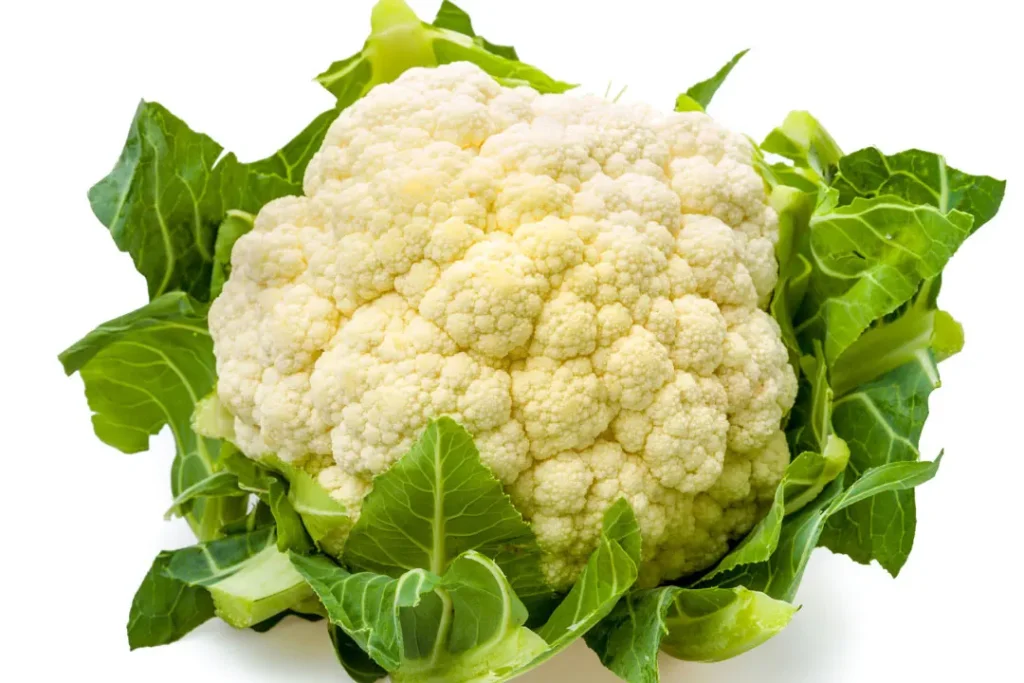
Health Benefits of Cauliflower
Cauliflower has a wealth of antioxidants, which contribute to many of its health advantages. Antioxidants reduce oxidative stress in the body by scavenging dangerous free radicals. By doing this, they contribute to the prevention of chronic illnesses including cancer, heart disease, and neurological problems.
The antioxidant vitamin C, which is essential for the formation, growth, and repair of bodily tissues, is found in abundance in cauliflower. It promotes collagen production, absorbs iron, and improves the immune system.
The anticancer abilities of the isothiocyanates made from the glucosinolates in cauliflower have been well investigated. These elements prevent the growth and spread of cancer at several phases, such as initiation, promotion, and metastasis.
Choline, a vitamin in which many individuals are lacking, is also present in cauliflower. Choline is a crucial component in the synthesis of DNA, maintenance of metabolism, and preservation of cell membrane integrity. Additionally, it is essential for brain growth and function, aiding in learning and memory functions and lowering the risk of neurodegenerative diseases.
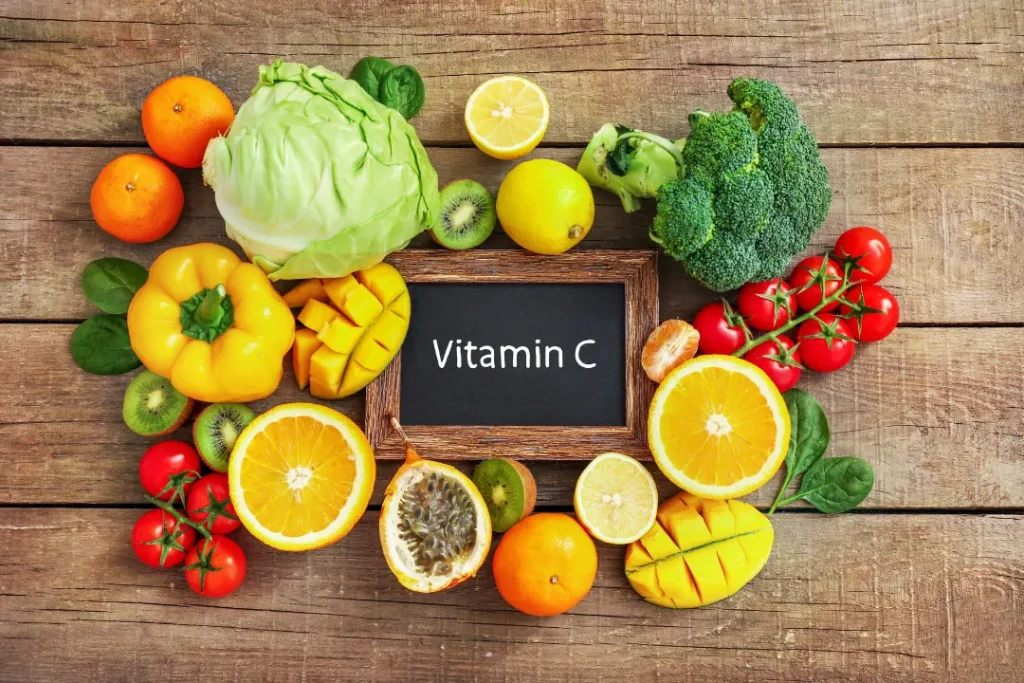
Chemistry of Cauliflower
The significant nutritional profile and distinctive class of phytochemicals found in cauliflower characterize its chemistry. In addition to being a good source of vital minerals like potassium, manganese, and magnesium, the vegetable is also a good source of the vitamins C, K, B6, and folate. It also contains dietary fiber, which supports your digestive health.
But cauliflower’s unique makeup of glucosinolates—compounds that include sulfur—is what gives it its true potency. Sulfur and nitrogen-containing chemical molecules known as glucosinolates are what give cruciferous vegetables like cauliflower their distinctive pungency. These glucosinolates are transformed into other bioactive substances, such as isothiocyanates and indoles, by the enzyme myrosinase when mechanical disruption, such as that caused by chopping or chewing, takes place.
Due to its strong anti-inflammatory and antioxidant characteristics, sulforaphane, a form of isothiocyanate, has been the focus of substantial study. The antioxidants kaempferol and quercetin, which are recognized for their anti-inflammatory properties and heart health advantages, are also present in cauliflower.
Physiological Mechanisms of Action
Isothiocyanates, which are the converted glucosinolates, have an effect on health via a number of physiological pathways. They affect the body’s natural detoxification enzymes in phases I and II, facilitating those processes. They carry antioxidant defenses as well, aiding in the reduction of oxidative stress and the neutralization of dangerous free radicals, which may stop cellular damage and the emergence of chronic diseases.
Histone deacetylase (HDAC) enzymes have been reported to be inhibited, especially by the compound sulforaphane. This is crucial because HDAC inhibitors are being investigated for their potential use in the treatment and prevention of cancer. Sulforaphane may assist in regulating the cell cycle and averting aberrant cell development by decreasing these enzymes.
On top of all the previously mentioned benefits of this vitamin, the choline in cauliflower is an essential component of brain functioning. It is an intermediate in the synthesis of acetylcholine, a neurotransmitter crucial for processes including memory and muscular control. Choline is essential for lipid transport, metabolism, and preserving the structural integrity of cell membranes.
By giving the food more bulk and encouraging regular bowel movements, the dietary fiber in cauliflower contributes to the maintenance of a healthy digestive system. Constipation and diverticular illness may both be avoided in this way.
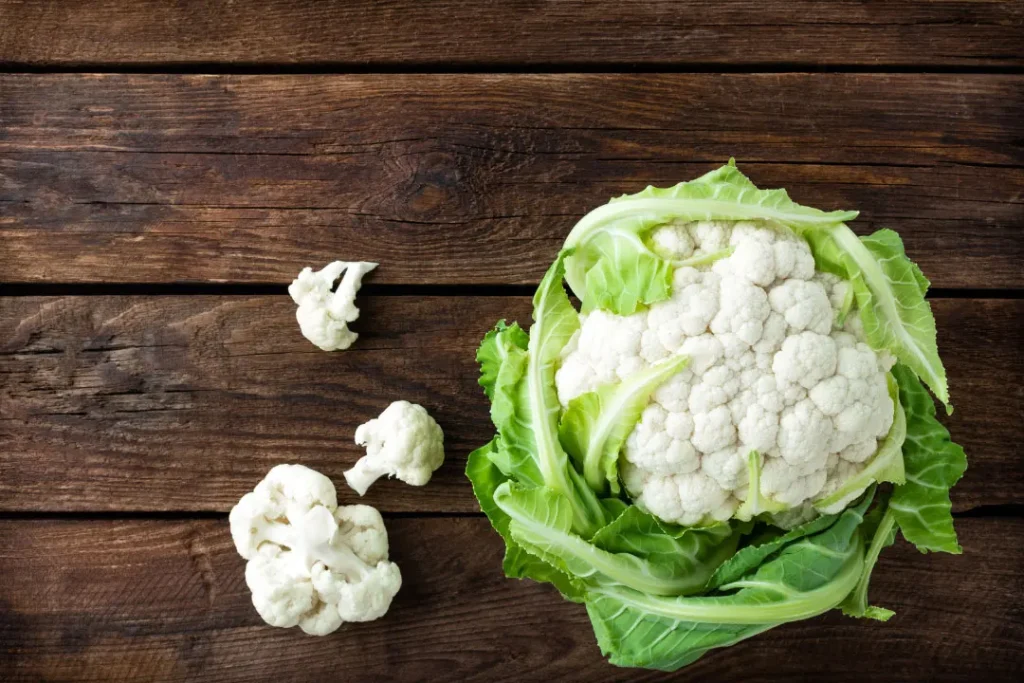
Optimal Dosage
Although there isn’t a set daily consumption recommendation for cauliflower, a serving of one to two cups per day would probably be healthful and fall within the guidelines for overall vegetable intake. While raw cauliflower preserves the greatest amount of nutrients, it’s crucial to keep in mind that boiling may increase the bioavailability of certain substances.
Side Effects
Cauliflower is often well-tolerated and seldom causes negative effects. However, because of its high fiber and sulfur content, over-ingestion might result in bloating and gas. Additionally, those who have hypothyroidism may need to restrict their consumption since goitrogens found in cauliflower might affect how well the thyroid functions.
Potential Substance Interactions with Cauliflower
Cauliflower with drugs do not interact negatively known. Cauliflower has a high vitamin K level, thus those taking anticoagulants like warfarin should consume it regularly to prevent changes in their blood clotting status.
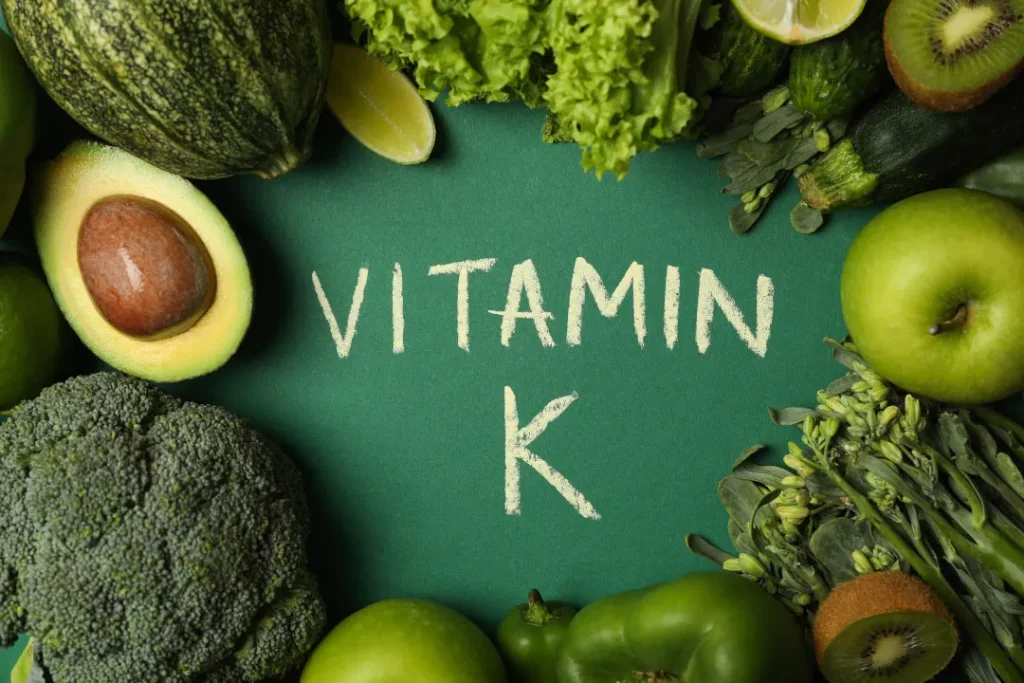
Best Use of Cauliflower
In the last ten years, there has been an exponential increase in the diversity of cauliflower in culinary uses. It is a very versatile component in many different cuisines because of its mild, sometimes nutty taste, pleasing crunch when raw, and delicate smoothness when cooked. Its nutritional composition instantly amplifies a variety of cuisines.
Cauliflower has been a well-liked low-carb substitute for grains and legumes in diets like the ketogenic or other carbohydrate-restrictive diets. When riced or pureed, its propensity to resemble rice or mashed potatoes has made it a go-to dish for consumers trying to increase their vegetable diet without compromising comforting culinary textures.
Cauliflower is a fantastic and tasty complement to soups and curries. The vegetable takes on the tastes of the other components in the meal easily, enhancing the flavor of the dish as a whole. It may also be roasted, grilled, or broiled with a variety of spices to create a tasty and nutritious side dish.
It is better to steam or stir-fry cauliflower in order to maintain its nutritious value. The nutritional losses that might result from boiling can be reduced using these techniques. It is also important to remember that fermenting cauliflower, such as when pickling or making sauerkraut, may increase its probiotic benefits, which are good for the stomach.
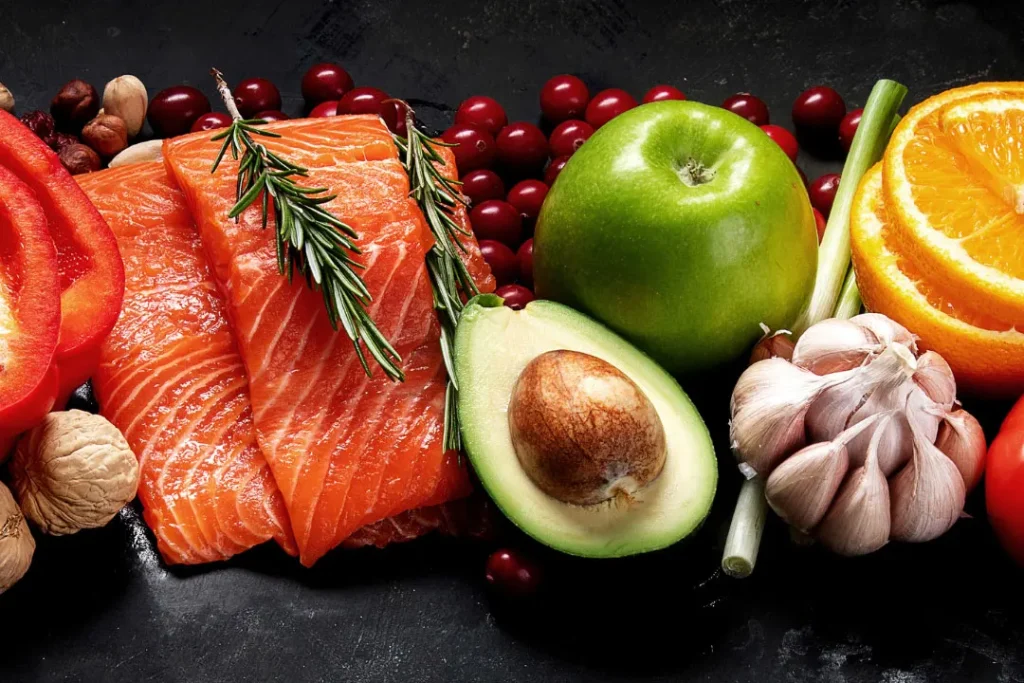
Cauliflower: Conclusion
Incorporating this cruciferous veggie into your diet will help you maintain positive brain function and relieves your cells of oxidative stress, protecting your body against the long term damage from exposure to free radicals. Cauliflower is versatile, delicious, and high in dietary fiber, which is amazing for gut health. Adding fiber-rich foods to your diet can regulate your digestive system and allow you to continue enjoying the other foods you love the most. Cauliflower does not have any prominent drug interactions — those who do take medications like warfarin are advised to eat cauliflower to supplement their vitamin K levels. Any other concerns should be directed toward your medical provided and reviewed thoroughly before continuing to consume cauliflower.
References:
- “Cauliflower: Nutrition, health benefits, and recipes.” Retrieved from: https://www.medicalnewstoday.com/articles/282844
- “Cauliflower, raw | Agricultural Research Service.” Retrieved from: https://ers.usda.gov/sites/default/files/_laserfiche/DataFiles/51035/Cauliflower-2022.xlsx?v=13234
- “The Role of Glucosinolates and the JAZ Proteins in the Arabidopsis-Bacteria Interaction.” Retrieved from: https://www.frontiersin.org/articles/10.3389/fpls.2020.00556/full
Important Note: The information contained in this article is for general informational purposes only, and should not be construed as health or medical advice, nor is it intended to diagnose, prevent, treat, or cure any disease or health condition. Before embarking on any diet, fitness regimen, or program of nutritional supplementation, it is advisable to consult your healthcare professional in order to determine its safety and probable efficacy in terms of your individual state of health.
Regarding Nutritional Supplements Or Other Non-Prescription Health Products: If any nutritional supplements or other non-prescription health products are mentioned in the foregoing article, any claims or statements made about them have not been evaluated by the U.S. Food and Drug Administration, and such nutritional supplements or other health products are not intended to diagnose, treat, cure, or prevent any disease.


